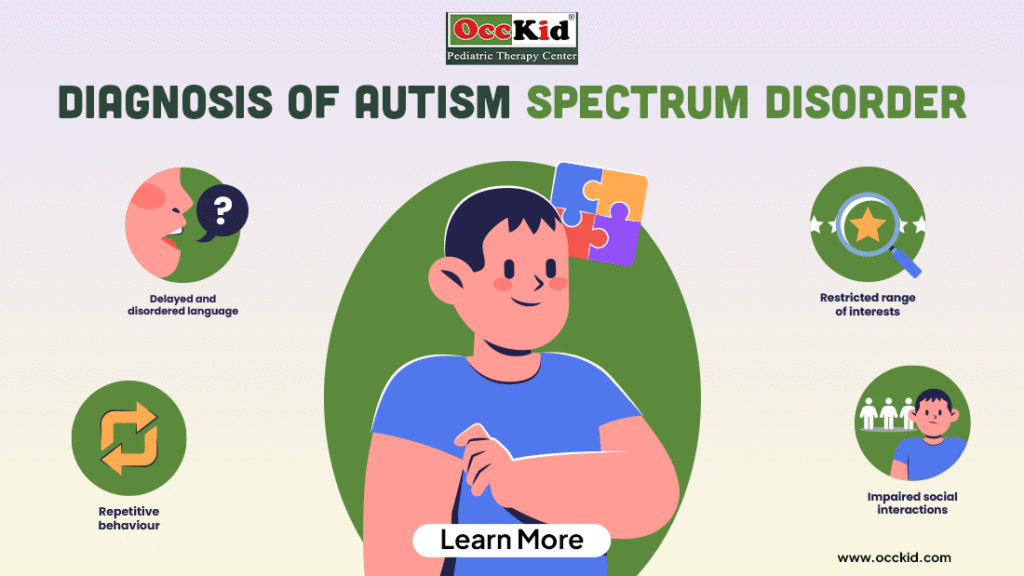Unlike physical illnesses, Autism Spectrum Disorder (ASD) cannot be confirmed with a medical test, blood test, or pathology report. This is because ASD is not a disease, but a neurodevelopmental condition that arises from differences in brain development.
Diagnosis is therefore clinical, relying on a combination of behavioral observations, developmental history, and standardized assessments carried out by trained professionals.

Tools Used in India for Autism Assessment
In India, several evidence-based tools are used by clinicians to identify and assess autism:
- ISAA (Indian Scale for Assessment of Autism)
- Developed by the Ministry of Social Justice and Empowerment.
- Widely used for diagnosis and government certification.
- NIMHANS Diagnostic Battery for Autism Spectrum Disorder
- Developed by NIMHANS, Bangalore.
- Provides structured tools for comprehensive evaluation.
- INCLEN Diagnostic Tool for Autism Spectrum Disorder (INDT-ASD)
- Developed by the International Clinical Epidemiology Network.
- Used for children aged 2–9 years.
- CARS (Childhood Autism Rating Scale)
- Adapted and applied in Indian clinical practice.
- Helps in screening and diagnosing varying levels of autism.
- ADOS-2 (Autism Diagnostic Observation Schedule, 2nd Edition)
- Considered the gold standard internationally.
- Available in select Indian centers with trained experts.
- M-CHAT (Modified Checklist for Autism in Toddlers)
- Used for screening below 2 years.
- Identifies early red flags for further assessment.
Diagnosis Below 2 Years of Age
Formal diagnosis under the age of 2 is challenging, but early red flags can be identified. Clinicians use:
- Parent/caregiver interviews
- Structured and unstructured behavioral observations
- Screening tools like M-CHAT
Key early signs may include:
- Lack of social smile
- Not responding to name
- Absence of joint attention (not looking where others point)
- Repetitive or unusual play patterns
The Step-by-Step Process of Diagnosis
Diagnosing autism involves multiple stages rather than a single test:
- Screening – Initial detection through tools and parental inputs.
- Observation – Careful behavioral evaluation across settings.
- Psychological Testing – Developmental and cognitive assessments.
- Clinical Judgment – Integration of findings by experienced specialists.
This multi-step process ensures accurate diagnosis and guides families toward timely therapy and interventions.
Final Note
Early identification and intervention are critical. At Occkid Pediatric Therapy Center, we believe that with the right support, therapies, and individualized care, every child can build skills, independence, and confidence.
📍 Occkid Pediatric Therapy Center
Occupational Therapy | Speech & Language Therapy | Physiotherapy | Special Education
📞 Contact: 9853999128
🏥 Address: Siddharth Nagar, Main Road, Berhampur
🌐 Follow us for more resources and guidance on child development.